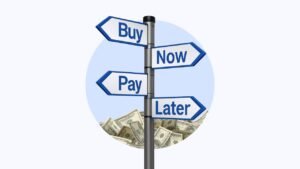Key takeaways
- A merchant cash advance forwards cash against future sales.
- MCAs have aggressive repayments that disrupt profitability until it’s repaid.
- Borrowing fees are high with rates of 50 percent to 100 percent or more.
According to the 2024 Small Business Credit Survey, business loans and lines of credit are the most commonly sought types of financing by small business owners. For businesses with steady credit or debit card sales, understanding what a merchant cash advance is may reveal a faster, more flexible funding option.
A merchant cash advance (MCA) provides a lump sum of capital in exchange for a percentage of future card-based sales, offering quick access to funds with fewer documentation and eligibility requirements than traditional loans.
Merchant cash advance loans are also one of the most accessible financing options — 58 percent of applicants received at least partial funding, and 33 percent were fully funded. Although MCAs are easy to get, they are not legally classified as loans, making them exempt from state lending laws, which could mean significantly higher costs.
How a merchant cash advance works
A merchant cash advance loan forwards payment to your business against future credit or debit card sales. It’s typically used to increase working capital for businesses and cover cash flow gaps. The advance works like this:
- Your business receives the cash. You and the financing company agree to the amount your business needs. The funds are dropped in your business bank account.
- The financing company charges fees. Instead of an interest rate, MCAs typically charge a factor rate that gets multiplied by the entire loan amount. For example, a $100,000 advance with a factor rate of 1.4 would cost a total of $140,000.
- Your business repays based on future sales. Repayments are often daily, though some MCAs offer weekly payments. The advance is repaid once you pay the borrowed amount plus the factor rate and any other fees.
Lenders that do merchant cash advances
Only some lenders offer merchant cash advances, so it’s important to compare providers to find the most favorable terms. These lenders offer the best merchant cash advances available:
Pros and cons of MCAs
Pros
- Approval rates as high as 91 percent
- High chance of approval for bad credit borrowers
- Funding within 48 hours
- Does not require collateral

Cons
- Requires daily or weekly repayments
- Factor rate fees often cost more and have shorter repayment terms than conventional loans
- Doesn’t help build credit
- No cap on interest rates, as MCAs are not subject to state usury laws
How to refinance merchant cash advances
Some MCAs allow you to refinance your cash advance if you need to extend the repayments. The trouble with refinancing is that most MCAs still require you to repay the total borrowing cost from the first advance.
If you refinance, the new advance may calculate interest on the first advance’s borrowed amount plus fees. You’ll then be paying interest on interest, which can trap you in a cycle of debt until you repay the advance in full.
How merchant cash advance repayment works
Merchant cash advances come with two options for repayment terms: a percentage of your credit card sales or a fixed payment. Most MCAs also keep repayment periods short, typically 18 months or less, depending on the lender.
Percentage of credit and debit card sales
Most MCAs structure repayments as a percentage of your credit or debit card sales, also known as a holdback. Holdbacks range from 10 percent to 20 percent of sales revenue. Because you’re paying a percentage, the exact amount paid to the financing company varies with each repayment.
You can estimate your repayment term based on how much you make in sales. The terms may be drawn out if sales dip at any point.
Calculating your repayment
Let’s look at the example of a $100,000 cash advance with a 1.4 factor rate. The total borrowing cost would come to $140,000 ($100,000 x 1.4 = $140,000).
If you generate $50,000 in sales each week and pay 20 percent toward the advance, it would take your business 14 months to repay the advance. To calculate the repayment term:
- Calculate each repayment: $50,000 in weekly sales x .20 (20% holdback) = $10,000 repayment
- Figure out how long it will take to repay: $140,000 / $10,000 = 14 weeks
Fixed withdrawals
Some MCAs take fixed withdrawals directly from your business bank account each day or week, similar to a conventional business loan. The fixed amount is calculated from your estimated monthly sales, and you can figure out how long it will take to repay the advance plus borrowing fees.
While the repayment term is predictable, you don’t have the flexibility to extend it if revenue slows down.
Merchant cash advance rates and fees
You’ll want to take note of the fees listed in the MCA agreement and ask questions if you don’t understand the borrowing costs. Merchant cash advance loans subtract these fees upfront. If the MCA charges $1,000 in fees for a $5,000 advance, your business will receive $4,000 in funding.
Typical financing fees for MCAs:
- Factor rates. MCAs may charge factor rates between 1.1 to 1.5, multiplying that rate by the amount you’re borrowing. These are typically charged on business loans for riskier borrowers.
- Origination fee. This fee is charged as a percentage of the borrowed amount and is a common fee for other business loans as well.
- Underwriting or funding fee. This fee is charged for reviewing the financing application. It may get charged as a percentage of the borrowed amount or a flat fee, depending on the financing company.
- Administrative fee. This flat fee covers the cost of processing or maintaining the MCA agreement.
Factor rate costs
Because merchant cash advances charge a factor rate, the cost of borrowing is often higher than other types of business financing, such as a working capital loan.
Take the $100,000 cash advance with a factor rate of 1.4 and a 14-month repayment term, for example. If you convert the factor rate into an interest rate, the annual interest rate for the $100,000 advance is 34 percent.
By comparison, if you were able to take out a short-term loan for the same amount with a 34 percent APR for one year, you would have more time to pay off your loan. Monthly payments would also be smaller, and you’d pay less in borrowing costs overall. Use a business loan calculator to help you crunch the numbers and see how much more expensive factor rates can be.
How to calculate the costs of a merchant cash advance
Before taking out a merchant cash advance, it’s important to calculate the costs to ensure it’s the best fast funding option for your business needs. Let’s continue with the example from above and calculate the total cost. When multiplying the $100,000 cash advance by the factor rate of 1.4, you get $140,000, meaning you’ll pay $40,000 in fees.
Your daily payback amount and time to repay the full amount will vary depending on your sales volume. Let’s see how the figures differ for monthly card sales of $50,000, $75,000 and $100,000.
| $50,000 monthly sales volume | $75,000 monthly sales volume | $100,000 monthly sales volume | |
| Total MCA | $140,000 | $140,000 | $140,000 |
| Monthly payback amount | $5,000 | $7,500 | $10,000 |
| Daily payback amount (30-day month) | $166.67 | $250.00 | $333.33 |
| Effective APR | 31.03% | 46.54% | 62.35% |
| Time for full repayment | 840 days or 28 months | 560 days or ~18.5 months | 421 days or 14 months |
In this example, a lower sales volume results in a lower payback amount and APR, but it takes longer to repay the debt. Taking your monthly sales volume into consideration and calculating your effective APR can make comparing MCAs to other financing options and their total costs easier.
Bottom line
Merchant cash advances can help when your business needs cash immediately to cover day-to-day expenses, and nearly any business with card sales can qualify even with bad credit. But its high fees and aggressive repayments may not be ideal for businesses with persistent cash flow problems.
If you don’t qualify for loans with traditional banks, consider business loans designed for bad credit borrowers, which may offer significantly lower interest rates than MCAs.
Frequently asked questions
Why we ask for feedback Your feedback helps us improve our content and services. It takes less than a minute to complete.
Your responses are anonymous and will only be used for improving our website.
Help us improve our content
Read the full article here
















